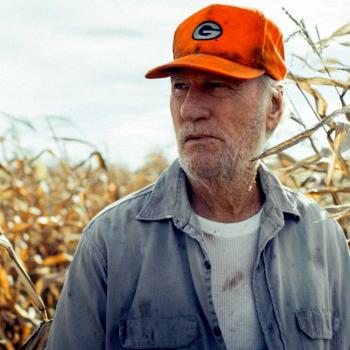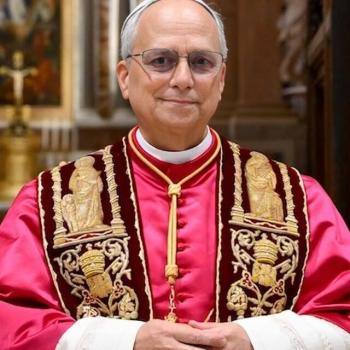St. Thomas Aquinas wrote that beauty is an attribute of goodness. Beauty can be recognized and defined, he explained in the Summa Theologica, based on three concepts: wholeness, balance, and radiance. Beauty, like natural law, emanates from the heart of God.
Pope Benedict XVI has lamented the "cult of the banal," which has gained a foothold in modern liturgy. Barbara Nicolosi, Founder of Act One and a professor at Pepperdine University, asserts that grandeur and beauty in music, the arts, and architecture has too often been sacrificed for a political agenda.
Enter Father Robert Barron, whose new book Catholicism: A Journey to the Heart of the Faith is an explosion of beauty and truth. Following in Christ's footsteps, Father Barron uses metaphors to explain the ineffable: Great Gothic cathedrals lead our eyes upward toward the heavenly kingdom; medieval paintings rife with symbolism are textbooks of the Faith.
For a brief moment when I first opened the book, I enjoyed a sense of smug superiority. The first line in the first paragraph in the Introduction asks the question, "What is the Catholic thing?" Father Barron explains that for Blessed John Henry Newman, "the Catholic thing" was the Incarnation, encapsulated in John 1:14, which says, "The Word became flesh and made his dwelling among us."
"No!" I exclaimed to no one in particular. "That's the Christian thing!" For surely, I thought, Catholics share this core belief with believers from all the Christian denominations.
But two pages later, Father Barron burst my ego bubble, catching me unawares with a distinction that I'd known at some primal level but never elucidated: Catholicism, he noted, has a keen sense of the prolongation of the Incarnation throughout space and time, an extension that is made possible through the mystery of the Church. Jesus didn't just enter the world on Christmas Day in the year 6 A.D. He enters yet today in the liturgy; in the graced governance of popes and bishops; in the texts, arguments, and debates of the theologians; in Catholic writing and art and in great cathedrals. He enters yet today, I realized, in my own humble prayer and in my daily work.
Catholicism is a whirlwind tour of ways that the infinite, eternal God enters our finite, temporal world.
Father Barron explores the great questions that lurk in the human heart: questions about the nature of God, about the Creed, the Incarnation, about Mary the Mother of God, about the Church, the sacraments, saints, prayer, and the indwelling of the Holy Spirit, and about the Last Things (heaven, hell, and purgatory).
In answering these deepest questions, he embraces controversies—the problem of evil, the existence of purgatory, the mystery of the Real Presence in the Eucharist.
You'll need a pair of sturdy intellectual running shoes to keep up with Father Barron, as he explores the world of faith by exploring the world God made. Catholicism is an energetic sprint through breathtaking landscapes and sparsely populated desert lands, resplendent cathedrals and humble country chapels. And what he does with photography in the companion ten-part video series, he does with prose in the book.
As I read Catholicism, I highlighted some favorite paragraphs. One that especially touched me was Father Barron's report of a conversation he had had with Cardinal Francis George, Archbishop of Chicago, following the election of Pope Benedict XVI to the papacy. He described the scene in April 2005, as Pope Benedict stepped out onto the loggia of St. Peter's Basilica for the first time as pope to bless the crowds. The pope was surrounded by the cardinals who had just elected him, and Cardinal George stood nearby.
Asked what he was thinking about at that moment, Cardinal George explained: "I was gazing over toward the Circus Maximus, toward the Palatine Hill where the Roman Emperors once resided and reigned and looked down upon the persecution of Christians, and I thought, 'Where are their successors? Where is the successor of Caesar Augustus? Where is the successor of Marcus Aurelius? And finally, who cares? But if you want to see the successor of Peter, he is right next to me, smiling and waving at the crowds.'"
You'll find Father Barron to be an expert tour guide. Whether you know a little or a lot about the faith, whether you're a life-long Catholic or you just want to understand the Catholic Church a little better, your spirit will be nourished by this journey through beauty and truth.
For more resources and conversation on the book Catholicism—including an interview with Fr. Barron—visit the Patheos Book Club.
10/2/2011 4:00:00 AM




